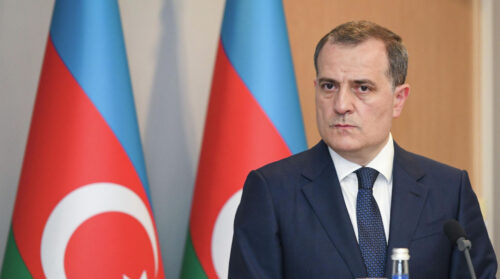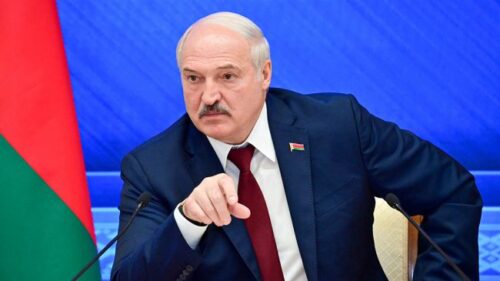
Vartan Oskanian: Pashinyan fails to grasp that diplomacy is a two-way street—it requires mutual engagement
At the Armenian embassy in Washington yesterday, Prime Minister Nikol Pashinyan once again resorted to manipulation, attempting to justify his defeatist approach under the guise of redefining Armenia’s national interests. His rhetoric may seem pragmatic to some, but beneath the surface lies a troubling trend of historical revisionism—one that endangers Armenia’s long-term security and national identity, former Foreign Minister of Armenia Vartan Oskanian says.
“National interests must evolve in response to geopolitical realities, but they cannot be built on the erasure or distortion of historical truths. For a small and vulnerable country like Armenia, maintaining a clear and unwavering historical narrative is not just a matter of pride—it is a strategic necessity,” Oskanian notes.
According to him, the loss of Nagorno-Karabakh in September 2023 was a defining moment for Armenia, forcing the country to confront harsh new realities. However, acknowledging reality does not mean surrendering historical facts or diluting national identity. Armenia must redefine its interests, not rewrite its history. More importantly, it must determine the most effective, non-confrontational means of pursuing those interests.
“At its core, Armenia’s national interest must remain the preservation of its sovereignty and security. This requires strengthening military capabilities, enhancing intelligence operations, ensuring strategic deterrence, and practicing prudent diplomacy.
Beyond security and diplomacy, the Armenian government has a duty to preserve and assert historical truth—not manipulate it for political convenience. Pashinyan’s attempts to downplay Armenia’s historical claims and revise narratives to accommodate external pressures do not serve national interests; they undermine them,” Oskanian said.
According to the former foreign minister, easing tensions with Turkey over the genocide issue does not require denying that the genocide occurred. Rather, Armenia can assert that Turkey’s non-recognition is not an obstacle to normalization while tempering its pursuit of international recognition. Likewise, addressing territorial concerns with Turkey does not mean erasing the historical existence of Western Armenia; it simply requires affirming that Armenia has no territorial claims.
“Pashinyan fails to grasp that diplomacy is a two-way street—it requires mutual engagement. His appeasement of Azerbaijan is neither valued nor effective, doing nothing to alter Baku’s aggressive and expansionist posture toward Armenia. His so-called realism is deeply flawed, stemming from ignorance, a fundamental misreading of geopolitical realities, and a primary focus on preserving his own position—leaving Armenia increasingly vulnerable to further threats.
Ultimately, national resilience is not built on denial but on a firm grasp of historical truths coupled with strategic adaptability. Pashinyan’s approach, which prioritizes short-term appeasement over historical continuity, is a dangerous gamble. Armenia’s survival and sovereignty depend not on rewriting history but on learning from it—leveraging its past to strengthen its future rather than allowing external pressures to dictate its national narrative,” Oskanian concluded.


